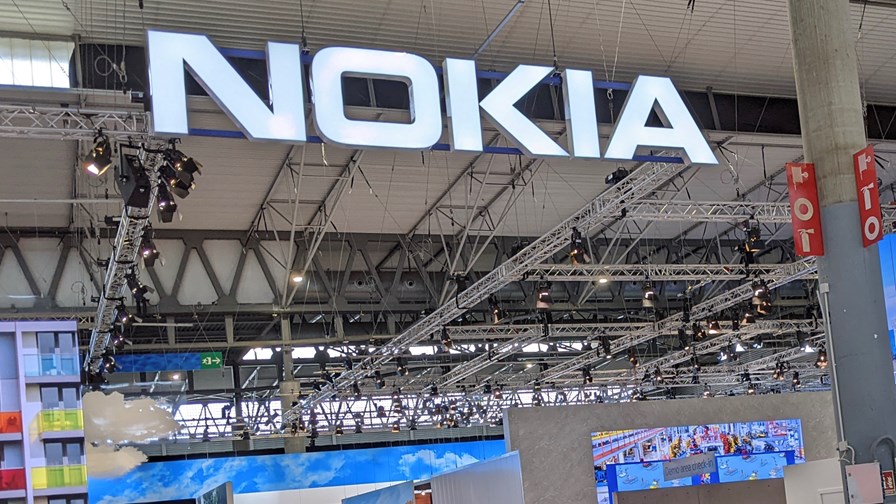
- Costs eat into Nokia’s margins despite rising sales
- AT&T reports higher mobile service revenues, seeks fibre JV investor
- Qatar investor reportedly close to taking stake in Vodafone Egypt
In today’s industry news roundup: Nokia’s earnings squeezed by higher costs and ongoing supply chain issues; AT&T boasts improving mobile service revenues and, according to reports, is seeking an investor for a major fibre access network joint venture; the Qatar Investment Authority is linked to a stake in Vodafone Egypt: and more!
Nokia’s third-quarter results unveiled a trend that’s likely to become familiar over the next few weeks as technology vendor earnings reports are released – revenues are up but profit margins (and share prices) are down. The Finnish giant reported sales of €6.24bn, a year-on-year increase of 6% at constant currency rates and a 16% increase in actual reported numbers, but its operating profit margin dipped to 8.3% from 9.3% a year ago as the company highlighted supply chain challenges and increasing costs are heaping pressure on its margins. Investors and analysts had expected better profit margins, and their disappointment was reflected in a 9.3% slump in Nokia’s share price to €4.31. Nokia isn’t alone, of course: Ericsson also reported its latest financials today and reported the same trend. There are also positives for Nokia to take from its third-quarter performance, though, in particular that its mobile networks division is reporting healthy growth and its Network Infrastructure division, which includes its fixed access broadband, optical and IP routing product lines, continues to grow and report “robust demand”.
US operator AT&T has reported a resilient third quarter, recording what it claims is the best growth in wireless service revenues in more than a decade. Its revenue from continuing operations in the period stood at $30bn compared with $31.3bn in Q3 2021. It attributed the 4.1% decline to the impact of the separation of its video unit in July 2021. Wireless service revenues were up 5.6% year on year to $15bn, mainly driven by growth in subscriber and post-paid additions, while it added 708,000 new post-paid net subscribers and 338,000 net additions to its fibre service. “We’re investing at record levels to enhance our 5G and fibre connectivity, and to deliver the best experience available in the market,” commented AT&T CEO John Stankey. He noted that the “healthy subscriber growth” is driven by the telco’s “disciplined go-to-market approach”. The company now expects its wireless service revenue growth to be in the upper end of the 4.5% to 5% range. “We remain confident in our ability to achieve, or surpass, all our financial commitments for the year, while still investing to bring our customers the industry’s best services,” Stankey noted. See more.
Still on AT&T… The company is reportedly engaged in talks to create a joint venture that will invest billions of dollars in the expansion of its fibre-to-the-premises (FTTP) access network, Bloomberg reported. According to the news agency, AT&T is seeking an infrastructure partner for the JV, which is expected to be valued at between $10bn and $15bn. Read more via BNN Bloomberg.
Qatar’s sovereign wealth fund, the Qatar Investment Authority (QIA), is reportedly nearing a deal to acquire a 20% stake in Vodafone Egypt from state company Telecom Egypt. According to Bloomberg, QIA is in advanced talks for the purchase, which is expected to close by the year end. The move, as per the report, is part of a wider investment campaign to buy stakes in the Egyptian telco and other state-owned companies for approximately $2.5bn, as the country experiences struggles due to inflation and Russia’s invasion of Ukraine. Vodafone Group’s ownership in the Egyptian telco currently stands at 54.9%. Read more via BNN Bloomberg.
Starlink, the satellite internet constellation operated by Elon Musk’s spacecraft manufacturer SpaceX, has launched an aviation service for private jets that offers “high-speed, low-latency internet from the moment they walk on their plane”. While deliveries are set to start in 2023, customers can begin reservations for the offering, which promises to deliver up to 350Mbit/s to any plane worldwide so passengers can use “streaming-capable internet at the same time”. According to Starlink, the latency of its service is “as low as 20 milliseconds”, which would enable passengers to make video calls, play online games, use virtual private networks and make other “high data rate” activities in-flight. Such service, however, comes at a price – between $12,500 and $25,000 per month, plus a one-time hardware purchase totalling $150,000, notes Reuters. See more from the company’s announcement on Twitter.
Still on connectivity possibilities while in transit… Qatar-based telco Ooredoo has announced it will supply managed Wi-Fi services and mobile broadband connectivity on more than 350 official buses for the FIFA World Cup Qatar starting on 20 November. The aim is to keep players and FIFA officials connected, while media staff can upload content and share broadcasts when travelling between venues.
Globe Telecom crowned itself as the first communications service provider in the Philippines to offer a converged mobile and fixed broadband service plan. Dubbed ONEPlan, the offering delivers “an always-on network experience, whether you’re on the go, or at home, shared with the whole family”, noted Coco Domingo, Globe VP of post-paid and international business. Learn more.
- The staff, TelecomTV
Email Newsletters
Sign up to receive TelecomTV's top news and videos, plus exclusive subscriber-only content direct to your inbox.




